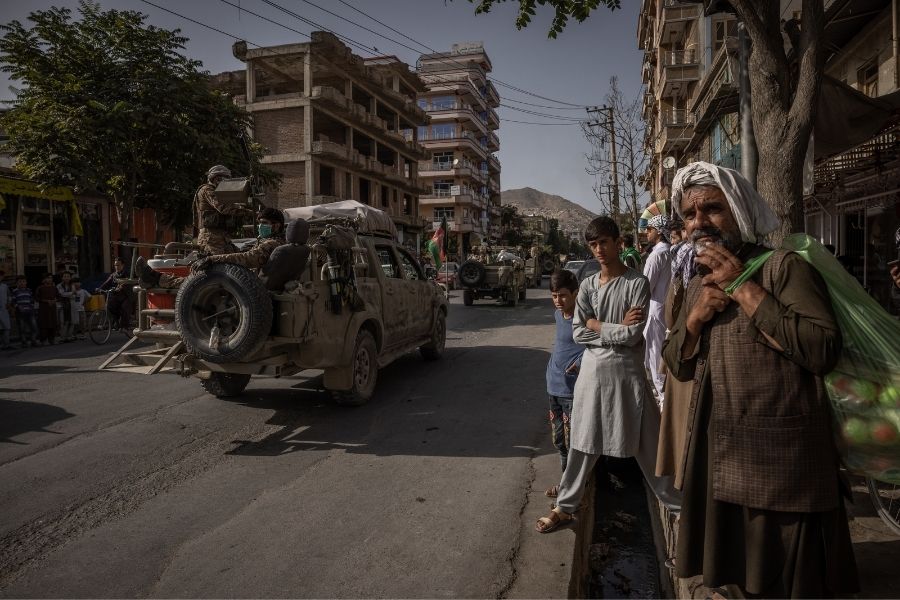
As the Taliban tightens its grip, fears of retribution grow
So far, the Taliban's political leadership has presented a moderate face, promising amnesty to government security forces who lay down their arms, even writing letters of guarantee that they will not be pursued, although reserving the right to prosecute serious crimes
 FILE — People watch a convoy of Afghan Security Forces vehicles in Kabul, Afghanistan on Aug. 16, 2021. Taliban leaders have promised amnesty to Afghan officials and soldiers, but there are increasing reports of detentions, disappearances and even executions. (Jim Huylebroek/The New York Times)
FILE — People watch a convoy of Afghan Security Forces vehicles in Kabul, Afghanistan on Aug. 16, 2021. Taliban leaders have promised amnesty to Afghan officials and soldiers, but there are increasing reports of detentions, disappearances and even executions. (Jim Huylebroek/The New York Times)
ISTANBUL — When Taliban troops seized control of the Afghan capital two weeks ago, the invading units made a beeline for two critical targets: the headquarters of the National Security Directorate and the Ministry of Communications.
Their aim—recounted by two Afghan officials who had been briefed separately on the raid—was to secure the files of Afghan intelligence officers and their informers, and to obtain the means of tracking the telephone numbers of Afghan citizens.
The speed with which Kabul fell on Aug. 15, when President Ashraf Ghani fled, was potentially disastrous for hundreds of thousands of Afghans who had been working to counter the Taliban threat, from prominent officials to midlevel government workers, who have since been forced into hiding.
Few officials found the time to shred documents, and thousands of top secret files and payroll lists fell into the hands of the enemy, the two officials said.
As U.S. troops complete their withdrawal by their Tuesday deadline, much of the nation is cringing in fear in anticipation of coming reprisals.
©2019 New York Times News Service







